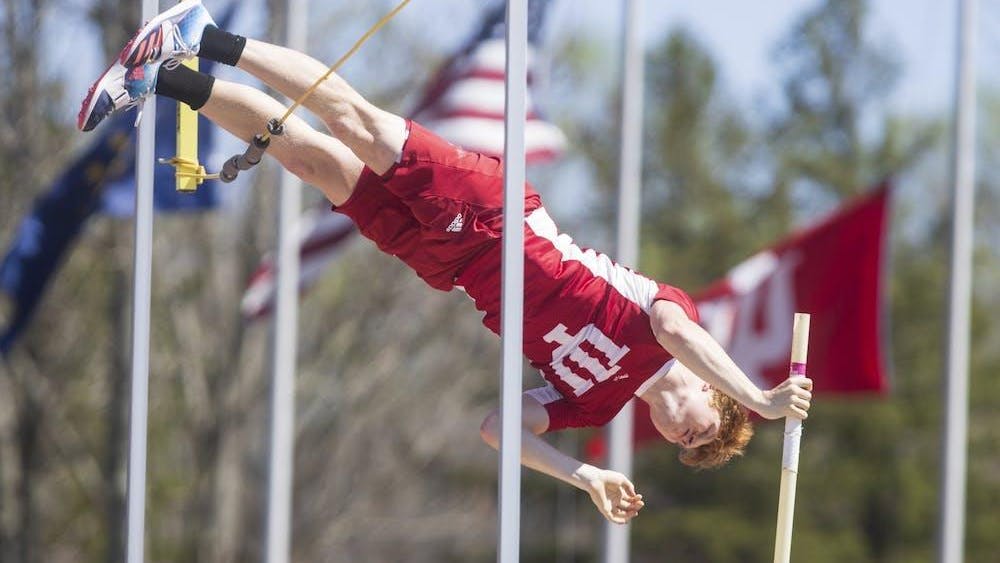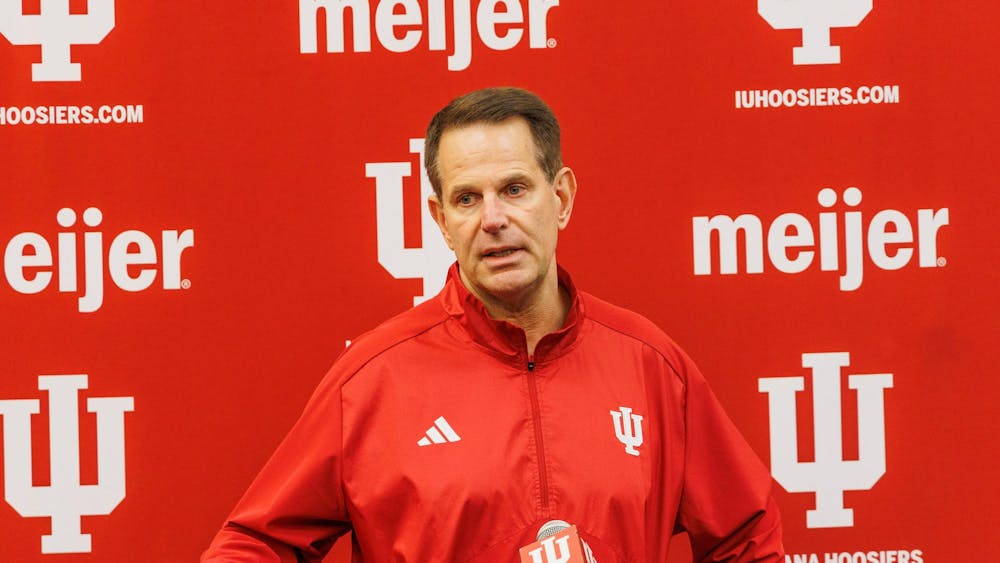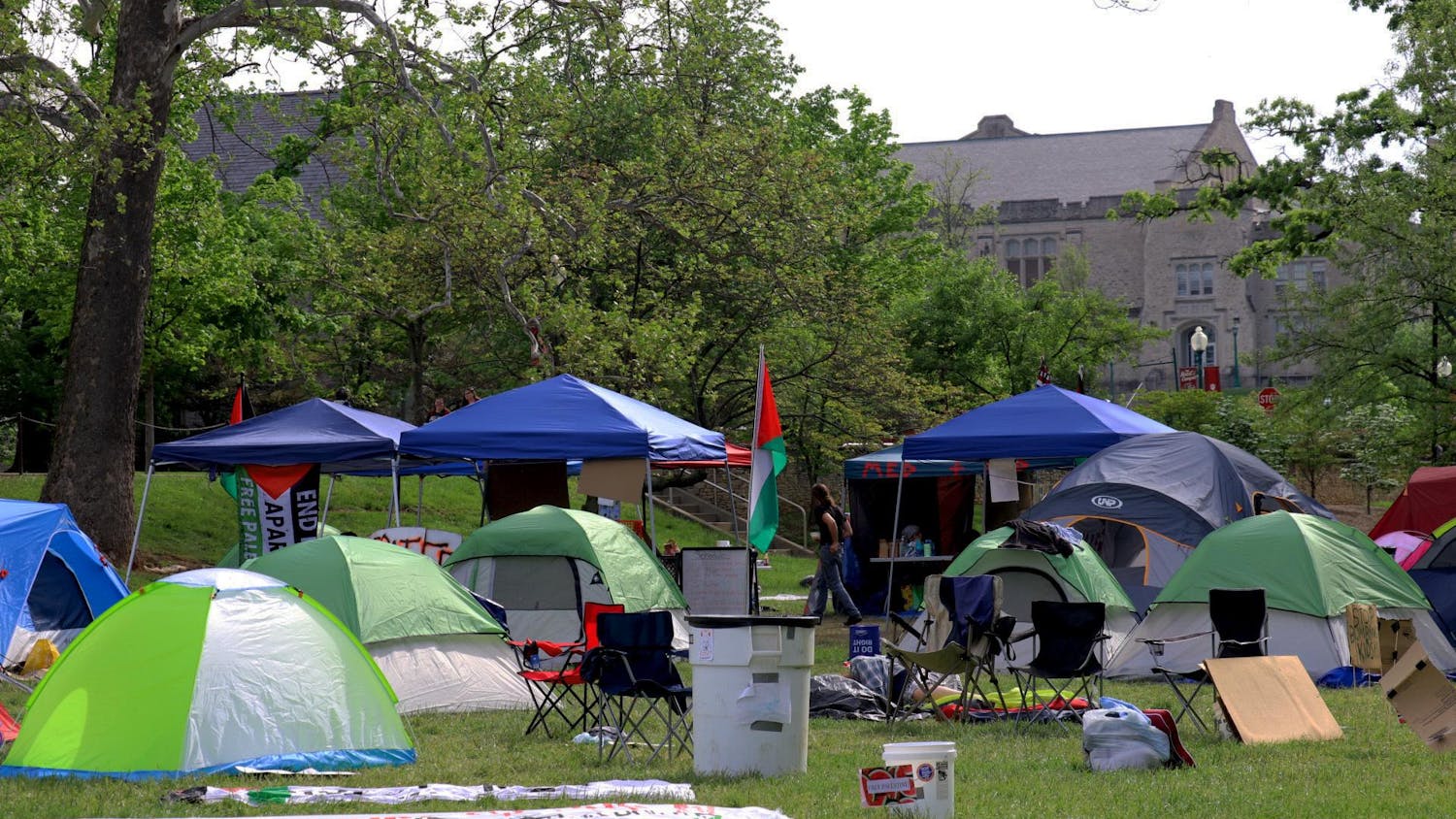Last year, Drew Marsch could barely make it through a 20-mile road ride. This year, he's in the gym four to five hours a day and spends several more at Bill Armstrong Stadium, pounding the cinders in preparation for Saturday's race. \nThe junior business major "just sort of fell into riding," one of the rookie recruits deemed "in shape enough" to start training with the Delta Sigma Pi cyclists.\n"I'd played soccer my entire life," Marsch, a junior, said, "but when I went on my first road ride, I was dying going up the hills. I made it the whole way, but it was tough."\nDelta Sigma Pi, a coed business fraternity, sends a men's and women's team to Little 500 each year. The men's team qualified No. 29 this year, an improvement from last year's No. 33 ranking. The women qualified No. 27. They qualified No. 23 in 2001.\nMoney poses a unique problem for non-greek teams like Delta Sigma Pi: Independent riders must pay for all their own expenses -- including bikes, training gear and spring break cycling trips.\n"We would like to be one of those teams up there training all year, and we've got goals for next year already," Marsch said. "But in reality, we know that's not gonna be us. We don't have the resources other teams have." \nMarsch is the only returning rider this year, a fact he chalks up to the demanding course loads required of business majors. \n"One guy graduated, and another just didn't have time," Marsch said. "The (business school) obviously loads a lot on us, so it's understandable."\nSenior Erin Mahoney, a veteran rider for the Delta Sigma Pi women's team, began riding with a friend who rides for Alpha Omicron Pi. \n"I was like, oh my God -- is this how it feels every single time," Mahoney asked after her first ride.\nYet she's worked through the pain and returns this year as the women's team's only veteran. Rookies include juniors Lindsey Jenda, Sarah Vohden and senior Mitzi Wilson. They began training together in January after the rookies completed the business school's integrative core coursework.\nBoth Marsch and Mahoney agreed it's difficult to recruit and retain new riders. \n"After the race each year about 50 people come up and say they want to ride," Marsch said. "Then it kind of dwindles. We're not going to be the best out there, and we know that. It's pretty much whoever puts time and effort into this will be out there riding." \nMahoney agreed.\n"It's really hard to find interest," Mahoney said. "At first, tons are interested, but as the year goes on, they're like, 'Never mind.' Basically it's me going out there and getting interest fired up."\nThe Delta Sigma Pi teams typically begin training at the outset of second semester, Marsch said.\nWorkouts usually consist of weight training, stationary bike workouts at the Student Sports and Recreation Center or road rides, and occasional sessions on rollers or wind trainers. The teams spent spring break together in Myrtle Beach, SC.\nWhile fraternity members turn out in full force on race day to support their teams, Mahoney admitted the team often feels a bit out of place during team events leading up to the final race. \n"Our frat is really supportive on race day, but all that stuff before makes it hard," Mahoney said. "Once in awhile some friends come out to the track, but usually it's just us and the greek houses. But in a way, that shows we have a lot of heart and spirit -- despite all odds, we'll go out there and do it."\nUltimately, the Delta Sigma Pi riders view the race as an intramural event, softening the biting competitive spirit typically associated with Little 500.\n"We go out there and we give it our best shot, but at the same time we're not disappointed if we don't win," Marsch said.
Coed fraternity battles for race day positions
Business fraternity gets a taste of Little 500 life through its own efforts
Get stories like this in your inbox
Subscribe





